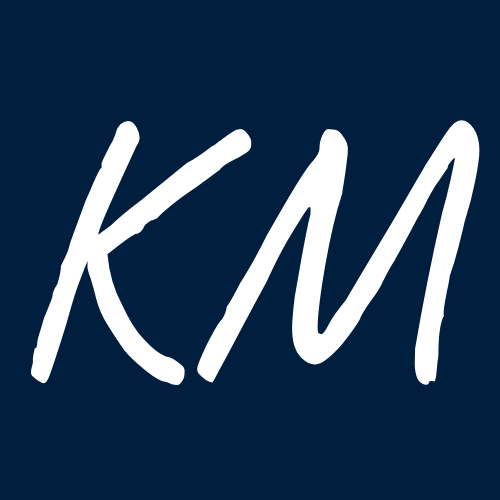TCL #24: FDA Nod for 3D-Printed Knee, $100M for Green Methanol, Siemens' $5.1B Dotmatics Deal
Also, INEOS’s $3B U.S. Energy Push, Quaker Houghton’s Double Acquisition, and Recycled Carbon Black in Swedish Autos.
Get The Chem Ledger in your inbox—science, strategy, substance.
Materials
Enviro utilizes pyrolysis technology to recover valuable materials such as carbon black, steel, and oil from tires. (Video: Enviro)
Enviro, a Scandinavian company that produces recovered carbon black (rCB) from end-of-life tires has collaborated with AnVa Industries that specializes in the development and manufacture of molded elastomer and silicone products. AnVa utilizes Enviro's rCB to manufacture high-performance rubber components for the Swedish automotive sector with a lower carbon footprint. AnVa has reduced its carbon emissions by over 2 million kilograms of CO2 equivalents through the use of Enviro's recycled materials.
Biomaterials
- restor3d has received FDA 510(k) clearance for the "iTotal Identity CR 3DP Porous Total Knee Replacement System". This system is notable for being a cementless, patient-specific knee replacement. restor3d plans a limited market release of this product in Q3 2025.
- Bloom Biorenewables SA, a Swiss company focused on selectively converting cellulose and lignin into value added products has raised CHF 13 million (around $15 million) in Series A funding. The funding round was led by Anaïs Ventures SA and Valquest Partners. Notable investors included Breakthrough Energy Ventures, Lombard Odier Investment Managers, and Amcor Ventures. The proceeds are aimed at advancing the development of the company's technology to convert plant material into chemicals, industrial inputs, and fuel. The company was created in 2019 as a spin-off from the École Polytechnique Fédérale de Lausanne (EPFL) and is based in Marly, Fribourg, Switzerland.
Energy
X-Energy's Xe-100 reactor uses fuel Pebbles, each containing 18,000 trisoparticles, ensuring over 99.99% containment of byproducts. (Video: X-Energy)
- Dow and X-energy have submitted a construction permit application to the Nuclear Regulatory Commission (NRC) for a proposed advanced nuclear project in Seadrift, Texas. The project involves an advanced small modular reactor (SMR) aimed at providing clean power and industrial steam to Dow's Seadrift manufacturing site where it produces over 4 billion pounds of materials annually for various applications. The project is supported by U.S Department of Energy's Advanced Reactor Demonstration Program (ARDP) to accelerate advanced reactor deployment. The construction permit approval process may take up to 30 months, with construction potentially starting later this decade. The project is expected to eliminate most Scope 1 and Scope 2 emissions at the Seadrift site. X-energy has secured approximately $1.1 billion in private capital for technology commercialization since being selected by the DOE in 2020.
- INEOS Energy has finalized the acquisition of oil and gas assets in the US Gulf from CNOOC Energy Holdings U.S.A. Inc. The acquisition marks INEOS Energy's third significant investment in the USA within three years, raising its total capital expenditure on energy assets in the country to over $3 billion. The deal boosts INEOS Energy's global production capacity to over 90,000 barrels of oil equivalent per day.
- Shell Singapore Pte Ltd (SSPL), a subsidiary of Shell plc, has completed the sale of its Energy and Chemicals Park in Singapore to CAPGC Pte Ltd, a joint venture between Chandra Asri Capital Pte Ltd and Glencore Asian Holdings Pte Ltd. The transaction involved the sale of shares in Aster Chemicals and Energy Pte Ltd, a fully-owned subsidiary of SSPL.
Battery
Siemens is investing CAD$150 million (approximately $106 million) over five years to establish a Global AI Manufacturing Technologies Research and Development (R&D) Center. This center will focus on developing cutting-edge AI manufacturing technologies to advance battery efficiency and refine production processes, with an initial emphasis on battery and electric vehicle (EV) production. The center will be initially located at Siemens Canada's head office in Oakville, as well as in Toronto and Kitchener-Waterloo, Ontario. Expected outcomes from the center include improved battery production quality, increased workforce productivity, reduced battery scrap, and enhanced recycling efforts.
Green Methanol
ENEOS, A.P. Moller Holding, and A.P. Moller-Maersk are investing in green methanol through a combined $100 million investment in C2X, a green methanol production company. The funds will be utilized to develop C2X' s green methanol portfolio, including Beaver Lake Renewable Energy (BLRE) project in Louisiana. The BLRE project aims to produce over 500,000 tonnes of green methanol annually and is in talks for long-term offtake agreements with Maersk and other industrial customers. The project will utilize SunGas's S-1000 gasification technology to convert biomass into low-carbon methanol and will sequester approximately 1 million tonnes of biogenic CO2 per year. The construction of the BLRE project is expected to commence in the second half of 2026.
Specialty Chemicals
- Quaker Houghton has acquired Dipsol Chemicals for 23 billion JPY (around $ 153 million). Dipsol specializes in the development, manufacturing, and distribution of metal surface treatment chemicals, including plating chemicals. Dipsol was established in 1953 and is headquartered in Japan. In addition to Dipsol, Quaker Houghton announced the acquisition of Natech, Ltd., a U.K.-based manufacturer of surface treatment chemicals, for approximately 4 million GBP (around $5.2 million). Joseph Berquist, CEO and President of Quaker Houghton:
We are very excited to have completed the acquisition of Dipsol and announce the acquisition of Natech, demonstrating our ability to use our strong financial position to make strategic investments that will accelerate growth and create shareholder value. Dipsol and Natech provide Quaker Houghton with leading market positions in their respective markets and product technologies, that complement our technical service model and add capabilities and breadth to our differentiated portfolio of products and services. They also expand our advanced solutions businesses in attractive end markets with solid growth characteristics, providing ample opportunity to cross-sell and meet the evolving needs of our global customers.
- FUCHS Group, a manufacturer of lubricants and related specialties, has acquired IRMCO Metalforming Lubricant Technologies, a manufacturer of oil-free metal forming and tube bending lubricants. FUCHS's CEO, Keith Brewer, emphasized that the acquisition strengthens their position as a leading provider of lubrication solutions for the industrial segment.
Pharma
- Marubeni, a major Japanese integrated trading and investment business conglomerate, is taking over Sumitomo Pharma's Asia business for $480 million. The deal involves Marubeni leveraging Sumitomo Pharma's established pharmaceutical supply system and reputation to enhance access to medicines in the region. The establishment of the new company is scheduled for April 2025, with a focus on manufacturing and sales of pharmaceuticals.
- Roche and Sarepta have temporarily halted several clinical studies in Europe related to Duchenne muscular dystrophy (DMD) following the death of a 16-year old patient treated with the gene therapy drug ELEVIDYS. The patient's death was attributed to acute liver failure, a known potential side effect of ELEVIDYS and similar AAV (Adeno-associated virus)-mediated gene therapies.
Life Sciences
Siemens has agreed to acquire Dotmatics for $5.1 billion from Insight Partners. Dotmatics, based in Boston, is a software company that provides Life Sciences R&D software. Siemens plans to integrate Dotmatics into its Xcelerator portfolio, creating an AI-powered Product Lifecycle Management (PLM) suite. The transaction is expected to close in the first half of the fiscal year 2026, pending regulatory approvals.
Plastics
Ingenia Polymers, a global provider of thermoplastics, additives, and resins, opened its first European plant in Obernburg, Germany on April 1, 2025. The plant is near Frankfurt, which is a strategic location that provides access to raw material supplies and major customers. This expands Ingenia's global presence to eight facilities.

